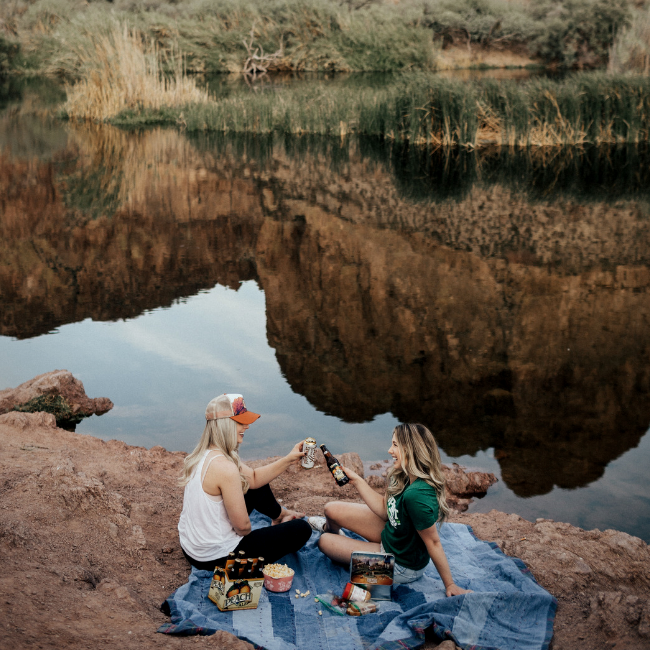July 4th is usually about three things—food, family, and fireworks! While the festivities can be thrilling for kids of all ages, unfortunately it’s also a holiday that sees an uptick in insurance claims. Below are the most common Independence Day risks—and tips for playing safe.
1. Keep Your Grill Clean And Free From Nearby Structures
Nothing says July 4th like potato salad, coleslaw—and of course BBQ’ed delights. However, according to the U.S. Fire Administration, improper grill methods are one of the leading causes of fire, property damage, and injury. Failure to clean the grill is one of the main reasons grease fires start—so keeping the grill clean is the first step towards cooking outdoors safely. The U.S. Fire Administration also recommends only using a grill outside, keeping a 3-feet clear safe zone around the grill so nothing is at risk of catching fire, and never leaving a grill unattended. For gas grills, it’s also important to open the grill cover before lighting and to check between the propane tank and fuel line for any leakages. For charcoal grills, it’s important not to add lighter fluid to an already lit grill. After you’re done grilling, douse coals with water afterwards and place them in a can with a metal lid after they have cooled. Whatever kind of grill you’re using, wear tight-fitting clothes to ensure your red, white, and blue attire won’t catch fire.
While grilling meat isn’t necessarily more of a fire risk than grilling vegetables, meat grilled at very high temperatures does pose a potential cancer risk. Chemicals known as PAHs and HCAs are formed when meat is cooked over high temps and—in the case of PAHs—when fat drips onto the flames and creates smoke. While there are no current federal guidelines for reducing PAH and HCA exposure, the National Cancer Institute suggests grilling meat above the flame, not directly in the fire. NCI also suggests grilling meat for short periods of time at temps below 300°F and to keep fat from dripping on the flames. NCI proposes removing charred portions of meat before eating and continuously flipping meat to avoid overcooking or burning. Or better yet, one can opt for a completely plant-based Fourth of July grill feast, as grilled vegetables pose no HCA risk.
2. Don’t Drink (Or Boat) And Drive
Celebrating July 4th with friends and family is always a fun way to enjoy the holiday. But if that celebration mixes alcohol and driving, the results can be devastating. According to the Insurance Institute For Highway Safety, July 4th has the highest number of traffic fatalities compared to any other day of the year—averaging 127 deaths in one day. So if you are driving to a friend or family’s house to celebrate, it’s best to opt for non-alcoholic summertime drinks such as an Arnold Palmer (lemonade and iced tea), cherry limeade, or club soda with fresh strawberries. Or if you are enjoying those holiday “spirits,” plan to call a cab or spend the night where you are celebrating.
July 4th also sees a surprising uptick in boating/drowning accidents—also usually due to alcohol consumption, inexperience with operating a boat, and lack of safety precautions. The American Boating Association called July 4th “the busiest and often deadliest time in boating season.” So while it might seem obvious, if you are operating a water vehicle, don’t drink alcohol. Also make sure that whoever is captaining the boat is experienced both in boat operation and safety procedures, and that everyone on board—especially children—is wearing a life jacket, as nearly 80% of those who die in boating accidents were not wearing a life vest. Operate the boat slowly through crowded waters and never swim near a boat that has the motor running.
3. If You Must Light Up, Do So On Flat, Hard Surfaces
It wouldn’t be Fourth of July without fireworks and sparklers lighting up the sky. However, according to the U.S. Consumer Product Safety Commission, about 280 people go to the emergency room every day in the days surrounding July 4th due to fireworks-related injuries. That’s why the U.S. Fire Administration strongly recommends avoiding lighting fireworks altogether and leaving the sparks to the pros.
However, if you must set off a few fireworks it’s important to first check to see which (if any) fireworks and firecrackers are legal in your area. If they are legal, have a fire extinguisher, hose, or bucket of water on hand to douse any out-of-control flames. You should also place any used fireworks into the bucket of water to make sure they are completely extinguished before throwing them in the trash. Light fireworks on a hard, flat surface—such as asphalt or concrete—not on grass or in containers. Wear safety goggles, never point a firework at someone, and don’t try to re-light or pick up fireworks that aren’t fully ignited.
And most obvious of all, never let children ignite or handle fireworks. Keep children at least 30 feet away from any firework that is ignited. Even tame-seeming sparklers are dangerous, as temperatures can reach over 2,000°F and injure people—including children—every year.
While many people will enjoy July 4th without accident or injury, there’s always an increased risk when fire, explosives, alcohol, and motorized vehicles are part of the festivities. But with a little knowledge and planning, you will greatly increase your chances of having a safe—and healthy—holiday.
Want to make sure your family is protected in the face of the unexpected? Click here to learn more about special rate life insurance with Health IQ.


